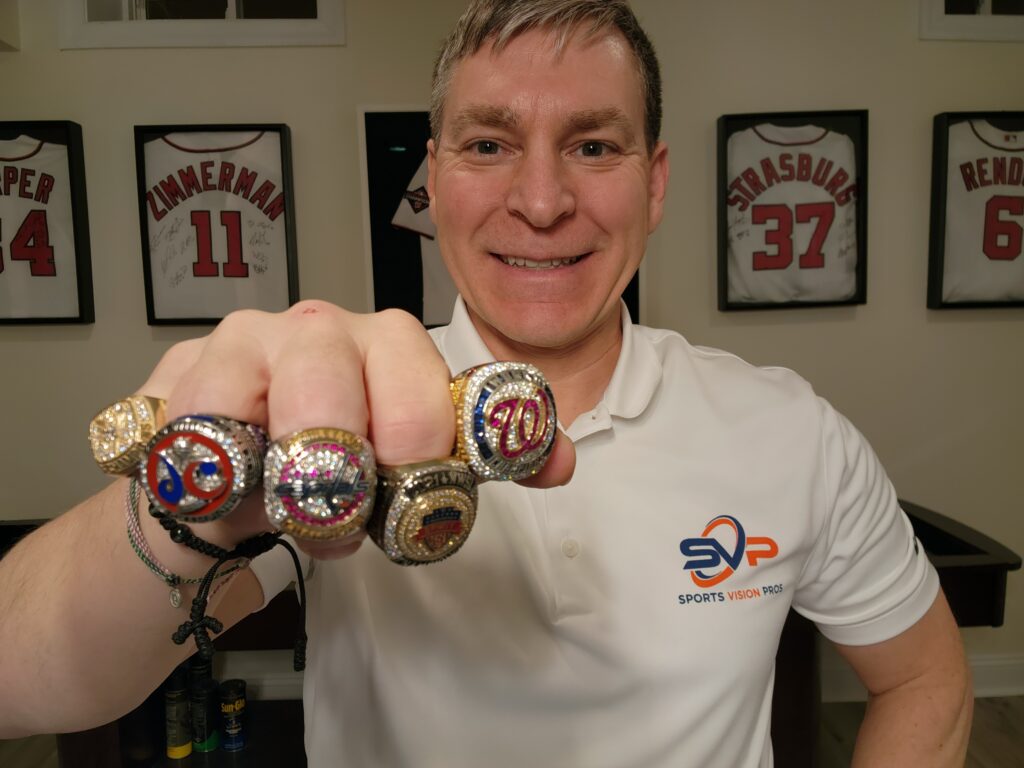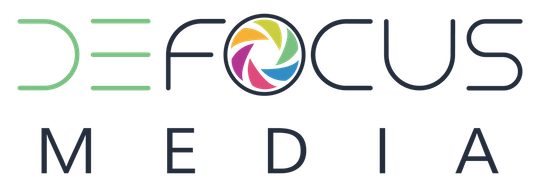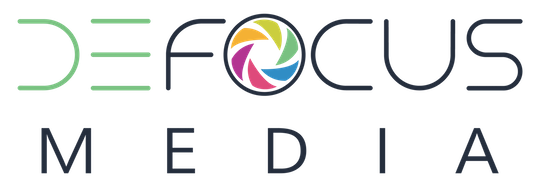Podcast: Play in new window | Download
Subscribe: Apple Podcasts | Spotify | Amazon Music | Android | RSS
Want to enhance your game? Dive ‘Beyond 20/20’ with Drs. Keith Smithson and Darryl Glover! Discover how elite athletes elevate their performance through vision and how YOU can too; No pro contract needed! Concussion management? We’ve got that covered.
Key Objectives:
In Partnership with Johnson & Johnson Vision

Introducing Dr. Keith Smithson
Dr. Darryl:
Seeing beyond 2020. Understood. Sports vision. Understood. The best company to partner with for sports vision. Understood. In today’s podcast, we have an incredible guest. That’s right. This young man will educate you on everything you need to know about the world of sports, vision, and how to elevate your practice.
I want you to stay tuned. Join us today as I get to hang out with the one and only Dr. Keith Smithson. This is a Defocus Media production. Your role.
We have to learn about your background, where you’re from, your motivations, how you entered eyecare, and then we can really get the party started.
Dr. Keith Smithson:
I hail from central Pennsylvania, having grown up playing sports throughout my life. So it’s something I came to gradually – what could I do to stay around the things that I loved? I was always interested in biology and medicine, so for me, it was about finding a way to combine two things I love: taking care of people’s health, specifically vision, and sports. It was a natural synergy.
I attended the University of Delaware, played soccer there, and now I’m coaching my own kids, having been around sports forever. I currently practice outside of Washington DC, in what we refer to as Northern Virginia. We have a multitude of different offices, with six of them scattered around the DC Beltway.
We’re officially on staff with pretty much every professional sports team in DC. So we get a chance to do some cool things, work with athletes every day, whether it be preseason physicals, injury management, or a basic contact lens fitting.
But one of the things I really value is making sure that we find a way to demystify the sports vision concept. There are many of our colleagues out there who say, “I’m not a sports vision doctor.” So what does a sports vision doctor even mean? I assure you that everyone listening to this podcast will see an athlete this week, whether it’s a 10-year-old soccer player, a 16-year-old baseball player, or a 65-year-old golfer. They are all athletes.
So, the objective for me and my partners at Sports Vision Pros is to demystify sports vision so that we can all meet the needs of the athletes we see every day. That’s sports vision to me. It’s not rocket science, it’s sports and vision tied together.
Understanding Vision Beyond 2020
Dr. Darryl Glover:
What does it mean to see beyond 2020?
Dr. Keith Smithson:
I had a conversation about this very subject with a young kid yesterday. I asked, “What does vision mean to you?” To most of the public, vision signifies the ability to see a chart clearly from the other side of the room. But for me, as a sports and performance vision specialist, vision encompasses more than that. It involves looking at aspects that go beyond 2020, beyond seeing a stationary target from a stationary position. Many sports and dynamic environments require much more, including peripheral vision, depth perception, muscular focus, and neurological aspects such as visual reaction speed and processing capabilities. In the sports vision world, all of these elements constitute vision.
Patient Intake Process
Dr. Darryl Glover:
But what does that communication look like and where does it truly start before they even see you?
Dr. Keith Smithson:
It truly starts before they even walk into the office. They fill out their online intake questionnaire, then meet with one of our technicians for basic pre-testing, like anyone else. In my practice, we have six offices with 13 doctors. We provide the basics of vision care that everyone in the country, and essentially globally, undergoes.
It’s not as if they’re dealing with some special, proprietary type of equipment that only I possess. We perform the same procedures as everyone else, albeit with a few extra innovative tools that can provide us with additional data. We conduct a basic workup that includes retinal imaging, pressure testing, and auto refraction, like any other practice.
As you mentioned, the key question is, “What brings you in today?” It could be anything from a broken pair of sunglasses to a family history of glaucoma or a coach’s concern about their nighttime ball-hitting ability. That initial question opens the door. Then, I get a chance to expand on that in the exam lane. If I understand the sport and know it well, we can delve right into it.
Addressing Unique Vision Needs of Shooters
Dr. Darryl Glover:
I’d like to circle back to something you just mentioned – shooters. I have these folks coming into my office because there’s a shooting range nearby. One thing I’ve always struggled with is setting them up with the right setup.
Dr. Keith Smithson:
My primary advice might sound a bit unconventional, but it’s quite straightforward – bring your equipment. For me to assist effectively, I need to see what you use, especially if you’re a high-level shooter who takes the sport seriously and is trying to compete.
They bring their equipment in a locked and safe condition, of course. I work with Olympic shooters who need to show me how they need to focus, which can vary greatly. For example, some need to stay focused on the front sight of a pistol, with everything at a distance allowed to be a blur. In this scenario, I can physically measure the distance to their front sight and provide a tailored focal point solution.
However, someone at the club shooting trap or skeet isn’t looking at their gun at all; their sport involves dynamic movement and muscle movement, focusing on targets instead. This difference might lead us down a different optical solution path, including options like multifocal contact lenses, monovision, or bifocal.
Approaching Concussions
Dr. Darryl Glover:
What’s the best way to approach concussions when a patient comes into your practice?
Dr. Keith Smithson:
Concussion patients are not fundamentally different from other patients. The key is to meet their needs and not be afraid to offer help. It’s worth noting that these patients aren’t always athletes. Many patients I see daily with post-concussion vision symptoms have experienced various incidents leading to a concussion, such as falls or auto accidents.
Their symptoms can be managed effectively. Some may have light sensitivity which can be addressed with photochromic technologies or sunglasses. Accommodative issues that arose from the concussion can be temporarily managed with multifocal technology. Convergence issues are among the most common symptoms we see, and they represent a significant opportunity for optometrists.
I’ve lectured extensively about optometry’s role in concussion management. It’s a massive opportunity for us. The medical professionals are increasingly looking to optometry to take the lead in concussion management because we are the functional visual specialists.
Collaboration with Athletes and Johnson & Johnson
Dr. Darryl Glover:
Could you discuss why you chose to partner with Johnson & Johnson, and perhaps share some stories of how you’ve used their products to improve an athlete’s performance?
Dr. Keith Smithson:
Certainly. One thing to keep in mind when working with athletes, especially professional athletes, is that I might only get to work with them once in a pre-season session. Once the season begins, it’s hard to get them away from their training facilities and into my offices.
I’ve been working with Johnson & Johnson for almost 25 years, starting with a consortium we assembled to explore vision performance around the Olympics almost two decades ago. Many innovations in sports and performance vision have come out of those conversations, such as eye-tracking technologies and basic visual skills technologies.
From a contact lens perspective, products like the Oasis Transitions lens and the one day max material have been game changers. The Oasis Transitions lens was unlike anything on the market when it was developed, while the one day max material has remarkable abilities to stay hydrated and remain consistent during a long and dynamic game. This is crucial because you don’t want a lens to dehydrate and cause problems mid-game.
Furthermore, the blue blocking filter, which blocks 60% of blue light, has applications beyond the digital device conversation. It improves night vision and helps in seeing balls under the lights without issues like starburst, glare, and reflections. The multifocal version of the Max lens can sometimes be the right option for shooting sports and is often used by our coaches on the sidelines.
Dr. Darryl Glover:
Speaking of coaches, it would be beneficial if referees also wore this lens, wouldn’t it?
Dr. Keith Smithson:
Absolutely, though it seems like sometimes they might have left them back at the hotel. The nature of the job can be quite unforgiving.
Sports Vision Pros: Linking Sports and Optometry
Dr. Darryl Glover:
Could you share a bit more about your passion project, Sports Vision Pros?
Dr. Keith Smithson:
Sports Vision Pros aims to connect the worlds of sports and vision so that people with visual needs understand that the best place to seek help is in optometry. It’s designed to educate athletes, parents, coaches, and trainers through social media and other outlets about the value of optometry in sports.
The hope is that they might bring something they’ve learned on Sports Vision Pros to their optometrist. And if the optometrist isn’t as well-versed in sports and performance vision, we provide resources for them to increase their knowledge in that area. The aim of this passion project is to combine two things we all love, sports and vision, and it serves as a valuable resource for anyone looking to elevate their practice.


